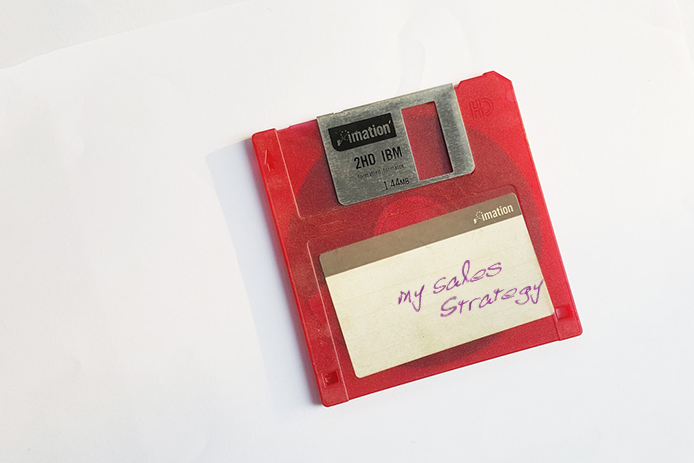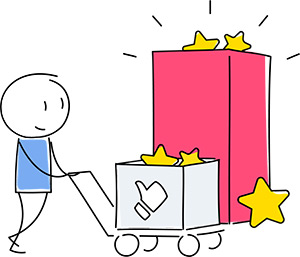As the Back to the Future movies predicted, most things got super cool in the 2010s, including hotel services. However, in the real world, some hotel managers still use sales techniques from 1985. What’s the best way to get stuck in the past? Keep reading to learn.
Don’t #1: Rely on traditional sales channels
Traditional channels: what are they? Cold sales calls, promoters in the city who hand booklets to strangers, ads in the local newspaper, and last but not least, email campaigns. If these are the only channels you use, this should be your wake-up call.
It’s essential for you to go and hit the online booking biosphere with your presence. Choose popular channels like Booking.com or Expedia. You might be saying to yourself: "But my sales are okay." Recent studies show that as the future approaches, they will stay just okay, nothing more. The main reason is that traditional channels are gradually losing their effectiveness.
According to a recent Skift report, the number of telephone orders has already dropped by 8%. At the same time, the number of bookings on hotel websites has increased by 7%. Researchers believe that this trend is here to stay. In short, if you aren’t selling any accommodations online, you’re losing a lot.
Don’t #2: Don’t install a booking engine on your website
The online booking module on your hotel website may be one of the most profitable sales channels, and yet the most economical, especially compared to OTA and IDS. Another reasonable question might pop up: "Do I really need the booking module on the site along with my other online sales channels?"
Yes, and here’s why: you may have heard of the billboard effect. It describes the phenomenon that guests are more likely to search for a hotel’s website online after they have seen the listing on another website. For example, some Booking.com visitors would prefer to book a room directly from your website when they find it.
In this scenario, the sales channel functions as a billboard advertising your hotel. Why does this happen? In their study, Skift assumes that guests are looking for a better deal. Therefore, the conclusion is simple. If the hotel is already represented in several IDSs, spend a little time and effort turning your website into a fully-fledged sales channel. The online booking engine will get you the most profitable bookings, and you’ll grow to compete with OTA / IDS in your online sales.
Don’t #3: Manage all distribution channels manually
Maybe you sell reservations through OTA / IDS, and maybe even via an online booking module on your website, but you control all these channels manually. This is a pretty difficult task! It gets even worse when you add additional channels and try to maintain the rest of channels. It will definitely turn into a burden, and if you aren’t keeping up with your online channel management, you’re losing money.
The good news is, there is a dedicated tool for automating this task! With this tool (called a channel manager), you can easily handle a large number of online reservations distributed and sold through multiple channels.
If the developer of this tool offers a free trial, including staff training and support for all the channels, don’t miss the opportunity! You’ll save a lot of time and increase the hotel’s income.
Don’t #4: Don’t do any SMM
Before you even think about social networks (i.e., if they’re good or bad for online promotion), just look at this number: 1,000,000,000 people were on Facebook at the same time in September 2015. Read it aloud: one bil-li-on users.
All these people are surfing through funny pictures, visiting their friends’ pages, chatting and looking for advice, especially when it comes to traveling (here's a great infographic that explains it).
Don’t underestimate social networks. They really work, and you can integrate online booking there as well.
Don’t #5: Don’t bother with guest reviews
In recent years, web portals like TripAdvisor (65 million unique visitors each year) where people leave comments about hotels, restaurants, etc., have boomed in popularity. This is a big game, and it greatly impacts the entire hospitality industry.
Specialists at Brightlocal.com found out that online customer ratings are a key factor by which potential guests decide if they want to stay in your hotel or not. This has nothing to do with the traditional hotel classification (three- or four-star hotels), but remember that 92% of your customers read reviews, and review stars are more important.
TripAdvisor is a great starting point. You might even already have an account there. Add info and pictures about your hotels, talk to people, and work with negative comments. It’ll greatly promote your hotel. Plus, TripAdvisor launched TripConnect in 2015, which is their own in-house booking module that let users reserve rooms without leaving the website.
It’s not a big deal if your business falls into some of these don’ts at the moment. Understanding the problem is the first step to fixing it. Now that you know what needs to be fixed, here are a few tools that will help you do that. The TL Hotel booking engine will let you sell rooms from your website, and TL Channel Manager will help you manage multiple distribution channels from a single account. Act fast and make sure your hotel is keeping up with the times.



